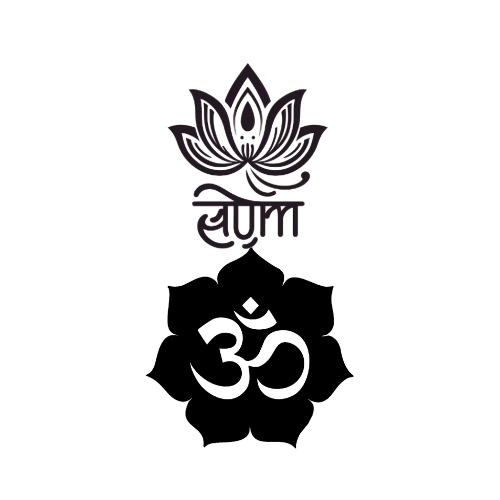Meaning and Importance of Physiology
Introduction
Physiology is the branch of biological science that explores the functions and mechanisms of living organisms. The term "physiology" originates from the Greek words physis (nature) and logos (study), meaning the "study of nature." It primarily concerns itself with understanding how the body systems interact, respond to internal and external stimuli, and maintain homeostasis to sustain life.
Physiology forms a critical foundation for numerous disciplines, including medicine, sports science, nutrition, and yoga. It helps in decoding the processes that keep organisms alive, providing insights into health, disease prevention, and human performance. This essay delves into the meaning of physiology, its relationship with anatomy, and its importance in various fields.
Meaning of Physiology
Physiology studies the biochemical, physical, and mechanical functions of organisms, from cellular processes to system-wide functions. It can be categorized into several subfields:
-
Cell Physiology:
Focuses on the activities and interactions of cells, including energy production, nutrient absorption, and protein synthesis. -
Systemic Physiology:
Explores how organ systems (e.g., cardiovascular, respiratory, nervous systems) work individually and in coordination. -
Comparative Physiology:
Examines physiological functions across different species to understand evolutionary adaptations. -
Pathophysiology:
Studies how normal physiological processes are altered by diseases or injuries. -
Exercise Physiology:
Investigates the physiological responses to physical activity and training, relevant to sports and fitness. -
Environmental Physiology:
Explores how external factors, such as climate and altitude, affect physiological processes.
Importance of Physiology
1. Foundation of Medical Sciences
Physiology is fundamental to medical education and practice. It explains how the body functions in health and how these functions are disrupted in disease. Medical professionals rely on physiological knowledge to:
- Diagnose conditions by understanding how symptoms relate to malfunctioning systems.
- Develop effective treatments that target specific physiological pathways.
- Monitor responses to interventions, such as medications or surgeries.
For instance, knowledge of cardiovascular physiology is crucial for treating heart diseases, while respiratory physiology aids in managing conditions like asthma.
2. Understanding Human Health and Wellness
Physiology offers insights into maintaining and enhancing health. It provides the knowledge required to:
- Develop dietary plans that meet nutritional needs based on metabolic rates.
- Design exercise programs tailored to individual fitness levels and goals.
- Recognize and manage stress by understanding the physiological impact of stress hormones.
For example, understanding how the endocrine system regulates hormones enables the development of interventions for hormonal imbalances.
3. Contribution to Sports and Fitness
Exercise physiology is pivotal in optimizing athletic performance and physical fitness. It helps in:
- Designing training regimens that improve strength, endurance, and flexibility.
- Preventing injuries by understanding the body's limitations and recovery mechanisms.
- Enhancing performance through knowledge of energy systems and muscle physiology.
For instance, knowledge of muscle fiber types (fast-twitch vs. slow-twitch) allows athletes to tailor their training to their sport's demands.
4. Role in Disease Prevention and Management
Physiology is essential for understanding the progression of diseases and how to prevent or manage them. It helps in:
- Identifying risk factors for lifestyle-related conditions, such as obesity or diabetes.
- Developing preventive strategies, such as exercise and dietary modifications.
- Understanding chronic conditions, such as hypertension, and their impact on the body.
For example, understanding the role of insulin in glucose metabolism is crucial for managing diabetes.
5. Importance in Yoga and Holistic Practices
In yoga and alternative therapies, physiology plays a critical role in understanding the benefits of practices such as asanas, pranayama, and meditation. Physiological insights help:
- Explain how yoga enhances flexibility, circulation, and respiratory efficiency.
- Understand the calming effects of meditation on the nervous system.
- Validate the role of pranayama (breath control) in improving oxygenation and energy flow.
For example, studies in respiratory physiology show how deep breathing techniques enhance lung capacity and reduce stress.
6. Advancing Research and Innovation
Physiology serves as a foundation for research in various domains. It aids in:
- Developing new medical devices and treatments, such as artificial organs or targeted therapies.
- Innovating in fields like biotechnology and pharmacology.
- Exploring the effects of environmental changes on human health.
For instance, research in cardiovascular physiology has led to advancements in heart transplant technology.
7. Importance in Nursing and Allied Health
Nurses, paramedics, and allied health professionals use physiological knowledge to deliver effective care. For example:
- Understanding fluid balance and electrolyte physiology is crucial in managing dehydration.
- Knowledge of respiratory physiology aids in ventilator management for critical care patients.
- Physiology of pain helps in choosing appropriate pain management strategies.
8. Contribution to Veterinary and Comparative Biology
Physiology is not limited to human health; it is equally important in veterinary sciences and comparative biology. It helps:
- Understand the physiological needs of animals for better care and management.
- Compare physiological traits across species to explore evolutionary biology.
- Address issues like zoonotic diseases (diseases transmitted from animals to humans).
9. Role in Public Health and Preventive Medicine
Physiology aids public health initiatives by providing insights into:
- How diseases spread and affect populations.
- The impact of environmental factors, such as pollution or climate change, on health.
- Strategies for disease prevention and health promotion.
For example, understanding respiratory physiology is vital during pandemics like COVID-19.
10. Enhancing Daily Life
Physiological knowledge empowers individuals to make informed decisions about their health and lifestyle. It helps people understand:
- The importance of regular exercise for cardiovascular and musculoskeletal health.
- How dietary choices affect metabolism and energy levels.
- The role of sleep and relaxation in mental and physical well-being.
Relationship Between Physiology and Anatomy
Anatomy and physiology are complementary disciplines. While anatomy describes the structure of the body, physiology explains how these structures function. For instance:
- Anatomy reveals the structure of the lungs, while physiology explains the process of gas exchange.
- Anatomy maps out the nervous system, while physiology describes how nerve impulses transmit information.
Together, they provide a comprehensive understanding of the human body.
Historical Evolution of Physiology
The study of physiology has evolved significantly over time:
-
Ancient Period:
Early insights into physiology came from philosophers and physicians like Hippocrates and Charaka, who explored the balance of bodily fluids and humors. -
Medieval Period:
Islamic scholars preserved and expanded physiological knowledge during the Middle Ages. -
Renaissance and Modern Period:
The Renaissance marked a scientific revolution in physiology, with pioneers like William Harvey discovering blood circulation. Modern advancements include molecular physiology and the use of technologies like MRIs and functional imaging.
Challenges and Ethical Considerations
Physiological research often involves ethical challenges, particularly in areas such as animal experimentation and human trials. Ensuring ethical practices and balancing scientific inquiry with compassion is critical.
Conclusion
Physiology is the science that bridges the gap between biology and medicine, providing a deeper understanding of how the body functions. Its importance extends across diverse fields, from healthcare and sports to public health and environmental science. By unraveling the complexities of life processes, physiology empowers us to improve health, prevent diseases, and enhance human potential. Its relevance in both ancient and modern contexts underscores its enduring significance in advancing human knowledge and well-being.

.png)
.png)
.png)
.png)



.png)
.png)
.png)
.png)
